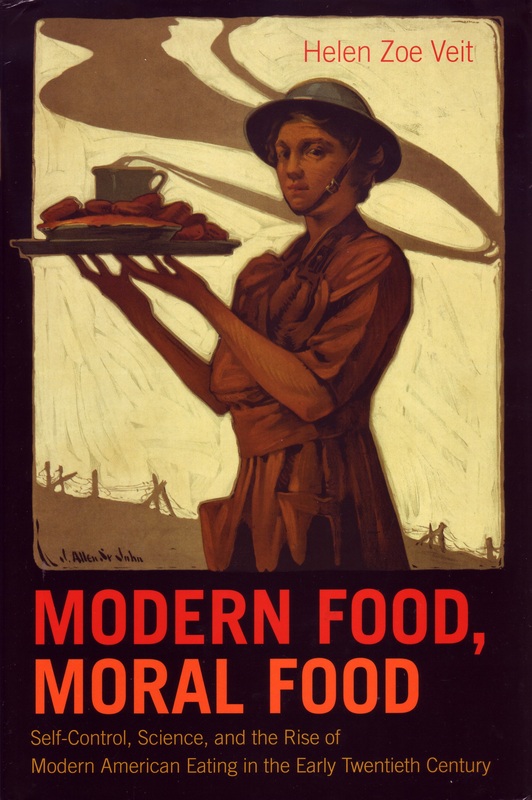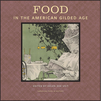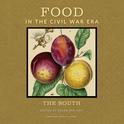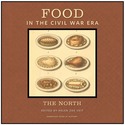|
Modern Food, Moral Food is available from Amazon, UNC Press, Barnes and Noble, and local bookstores.
* Learn more about Modern Food, Moral Food.
* Learn more about my second book on children's food. * Learn more about my books on food in the Civil War era. |
Finalist for the 2014 James Beard Award for Reference and Scholarship
"Can a book about self-denial be a pleasure to read? Veit’s Modern Food, Moral Food is certainly such a book; it is beautifully written, a monument to good historical research that is accessible to the average reader." --Melanie DuPuis, Journal of Interdisciplinary History "Veit's research breathes new life into the study of U.S. history in general. Proof that food history is a serious academic discipline that can stand alone or interweave with women's studies, ethnic studies, sociology, economics, or health sciences. Highly recommended." --Choice "A gripping read, full of fascinating information on conceptualizing, cooking, and eating food... This is a must-read for anyone who wants to understand the making of modern American dietary practice." --Kristen Hoganson, author of Consumers' Imperium: The Global Production of American Domesticity, 1865-1920 "Veit's superb scholarship and lively prose make for an important, timely contribution to modern food history." --Susanne Freidberg, author of Fresh: A Perishable History "Not simply of interest to food historians, this book offers great insights into political and intellectual currents of the Progressive era and the 1920s...Grounded in a rich documentary record and gracefully written, the book provides skillful interpretation and is enjoyable to read." -- Kendra Smith-Howard, Journal of Southern History |
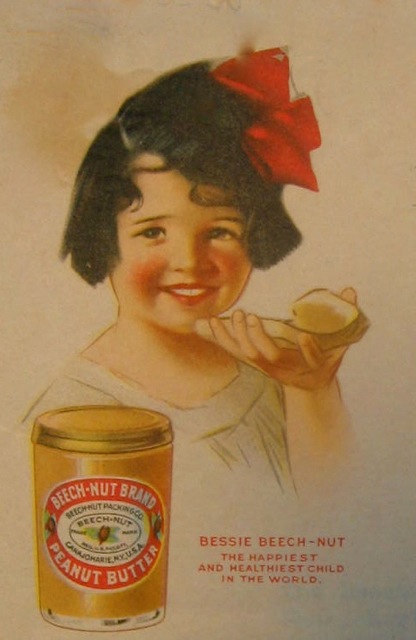
American eating changed dramatically in
the early twentieth century. As food production became more industrialized, nutritionists, home economists, and so-called racial scientists were all pointing Americans toward a newly scientific approach to diet. Food faddists were rewriting the most basic rules surrounding eating, while reformers were working to reshape the diets of immigrants and the poor. And by the time of World War I, the country's first international aid program was bringing moral advice about food conservation into kitchens around the country. In Modern Food, Moral Food, Helen Zoe Veit argues that the twentieth-century food revolution was fueled by a powerful conviction that Americans had a moral obligation to use self-discipline and reason, rather than taste and tradition, in choosing what to eat.
Veit weaves together cultural history and the history of science to bring readers into the strange and complex world of the American Progressive Era. The era's emphasis on science and self-control left a profound mark on American eating, one that remains today in everything from the ubiquity of science-based dietary advice to the tenacious idealization of thinness.
the early twentieth century. As food production became more industrialized, nutritionists, home economists, and so-called racial scientists were all pointing Americans toward a newly scientific approach to diet. Food faddists were rewriting the most basic rules surrounding eating, while reformers were working to reshape the diets of immigrants and the poor. And by the time of World War I, the country's first international aid program was bringing moral advice about food conservation into kitchens around the country. In Modern Food, Moral Food, Helen Zoe Veit argues that the twentieth-century food revolution was fueled by a powerful conviction that Americans had a moral obligation to use self-discipline and reason, rather than taste and tradition, in choosing what to eat.
Veit weaves together cultural history and the history of science to bring readers into the strange and complex world of the American Progressive Era. The era's emphasis on science and self-control left a profound mark on American eating, one that remains today in everything from the ubiquity of science-based dietary advice to the tenacious idealization of thinness.
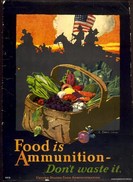
Watch the first and second short films in a series on food and World War I, produced by American Food Roots in partnership with the World War I Museum.
|

See the online "War Fare" exhibit on food at the National World War I Museum.
|

|

Read this American Historical Association blog post from Amanda Moniz about adventures in World War I food.
|

